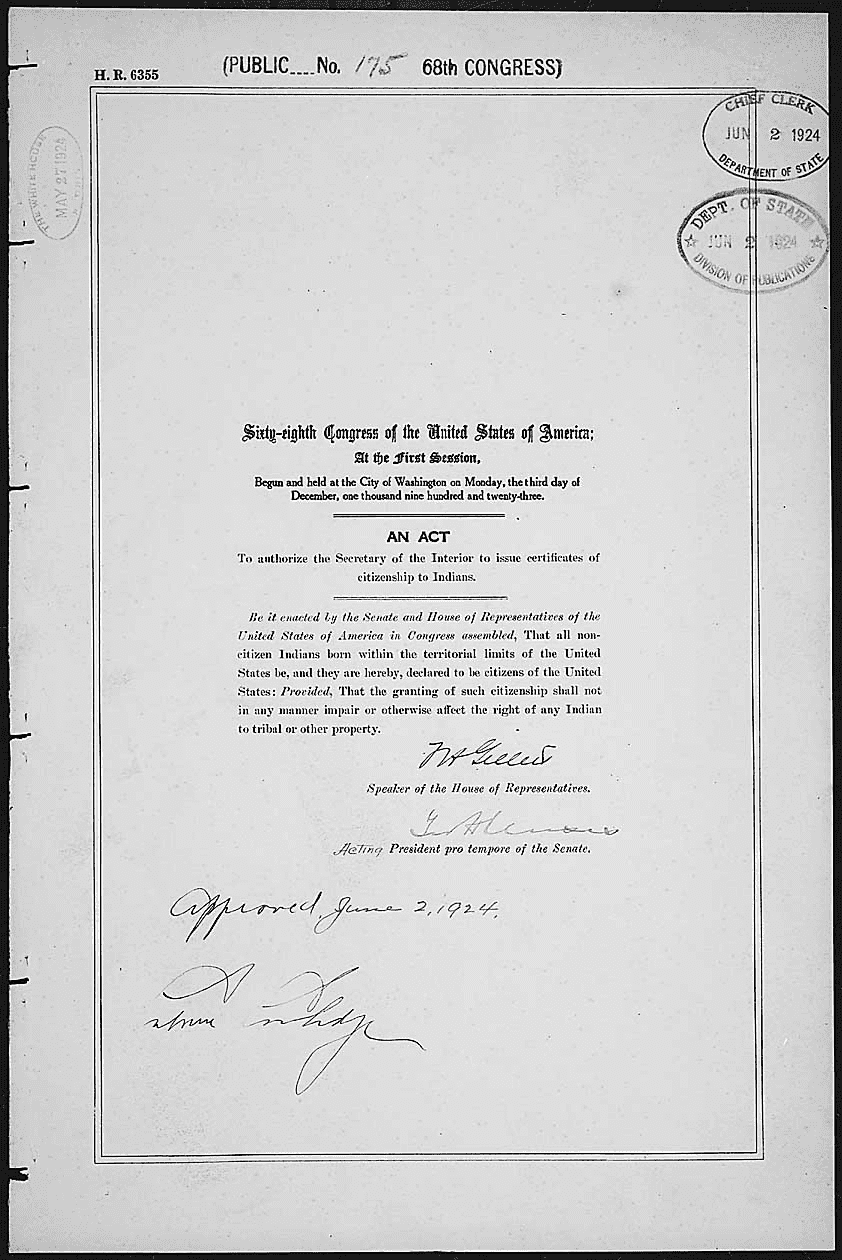2021 Marks the 97th Anniversary of Native American Citizenship Day
In my research of multiple sites that provide important dates related to Diversity and Inclusion, many of them list June 15 as National Native American Citizenship Day. However, just because I can’t find the answer does not mean there is not a good reason. It should be acknowledged that the actual date for the anniversary of Native Americans receiving citizenship is June 2; this year is the 97th anniversary. On June 2, 1924, Congress enacted the Indian Citizenship Act, which granted citizenship to all Native Americans born in the U.S.

Image from archives.gov.
Becoming Legal Citizens
The 1870 census showed that the estimated population of American Indians was more than the population of five states and 10 territories, yet 92% of those American Indians were not legal citizens. It was the Dawes Act of 1887 that gave conditioned citizenship to American Indians. The Dawes Act (1887) had shaped U.S. policy towards Native Americans. In accordance with its terms, and hoping to turn Indians into farmers, the federal government redistributed tribal lands to heads of families in 160-acre allotments. Unclaimed or “surplus” land was sold, and the proceeds used to establish Indian schools where Native-American children learned reading, writing and the domestic and social systems of white America. By 1932, the sale of both unclaimed land and allotted acreage resulted in the loss of two-thirds of the 138 million acres that Native Americans had held prior to the Dawes Act.
Before the Civil War, citizenship was limited to those American Indians who had less Indian blood. During the Reconstruction period, granting of citizenship to American Indian tribes was sought after by the Republicans in Congress. In 1888, American Indian women who married U.S. citizens were given citizenship. The American Indian WWI veterans got their citizenship in 1919. Native American rights advocate, Dr. Joseph Kossuth Dixon, a former Baptist minister, undertook efforts to document the Native American experience during World War I with the hope that documenting Native American service in the military would aid the struggle to obtain general U.S. citizenship. Forty percent of Native Americans were not citizens until 1924, though more than 12,000 served in the U.S. Army during World War I. Read the Geography & Map Division blog post Native Americans in the First World War and the Fight for Citizenship which shows a map that used Dr. Dixon’s work to document Native American participation during the war.

Image from the Library of Congress (The North American Indian in the World War).
Finally, it was in 1924 that all American Indians were conferred with U.S. citizenship as a result of the Indian Citizenship Act. During this time, almost 125,000 out of an estimated 300,000 of the American Indian population did not have citizenship.
For more information visit:
Greater Des Moines (DSM) welcomes diverse talent to the region. As one of the fastest growing business communities, inclusion and attracting diverse talent in the workplace is a key strategy of the Greater Des Moines Partnership. Learn more here.